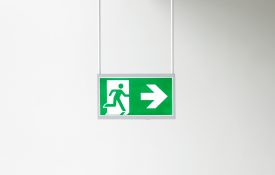-
Sorg og smerte er individuell
Aftenbladet Norway: KOMMENTAR: Samtidig er det noen av oss som er rammet med en individuell smerte og individuelle tap av sine aller nærmeste. Vi andre kan være der og bidra med vår nærhet og vårt fellesskap, men vi må vite at det finnes en individuell smerte som knapt er fattbar for noen. For dem som er direkte rammet, er den kanskje heller ikke fattbar, men den er dramatisk smertefull og følt. Tidligere tenkte vi på sorg som noe som gikk i faser. I dag har vi forskning som viser at sorgen først og fremst er individuell, og at også bearbeidelsen er individuell og personlig. Det er ingen faste oppskrifter på hvordan et menneske sørger.
-

Women Who Leave the Workplace: Opting Out or Overlooking Discrimination?
Research indicates that the common American assumption that behavior is a product of personal choice fosters the belief that opportunities are equal and that gender barriers no longer exist in today’s workplace.
-
Luxe wheels don’t roll humdrum worries away
New York Post: Taking the wheel of a new Mercedes-Benz or BMW might be love at first touch, but the pleasure won't last long enough to make you happy. A new study of motorists in the US says the instant buzz of driving an $80,000 luxury car is too fleeting to lift a person out of the daily ruts of life, and may not be worth the big showroom price. "A luxury car is indeed more fun than an economy car. But most of the time, the driver's mind is preoccupied with the mundane issues of daily life and the car makes little difference," said Norbert Schwarz, a marketing professor at the University of Michigan. "Hedonic experiences are fleeting." Read more: New York Post
-
How The Brain Keeps Track of What We’re Doing
“Working memory” is what we have to keep track of things moment to moment: driving on a highway and focusing on the vehicles around us, then forgetting them as we move on; remembering all the names at the dinner party while conversing with one person about her job. Most psychologists explain working memory with a “controlled attention” model: one flexible system that directs the brain’s focus to stimuli and tasks that are important and suppressing the rest. The capacity of working memory, they say, is limited by our ability to attend to only one thing at a time.
-
Sneezes Provoke Fears Beyond Illness
Scientific American: With H1N1 on the rise and flu shots hard to find, few things are as terrifying as [sneeze sound]. But now a report in the journal Psychological Science suggests that coughing and sneezing can spread more than viruses. They also spread fear, of germs and more. So you’re on line for a movie when the guy behind you lets loose a big, juicy [sneeze sound]. Maybe you hold your breath, or maybe you decide to skip the flick and go home to scrub your hands like you’re Lady Macbeth . Well, psychologists got to wondering whether that well-grounded caution could snowball into an overarching skittishness about disease and other things. Read more: Scientific American
-
Can riding thrill rides cure what ails you? Well, sort of
National Post: Next Monday in Toronto, people will begin paying $175 to go for a walk. The total distance travelled amounts to only 150 metres, but will leave participants short of breath. It’ll increase their heart rates and elevate their blood pressure. And from a medical perspective, it may be just what their bodies need. The “walk” is the CN Tower’s EdgeWalk, a tour around the observation pod’s outer edge. Located 356 metres (110 storeys) above the ground, the track that supports participants does not feature protective rails.

